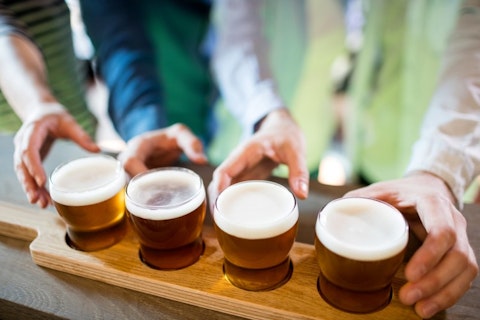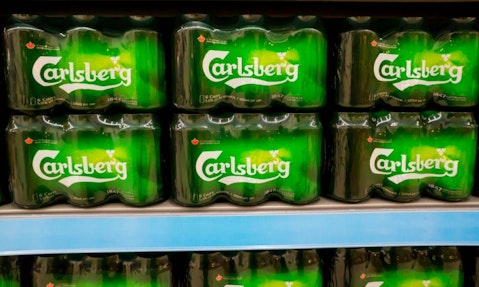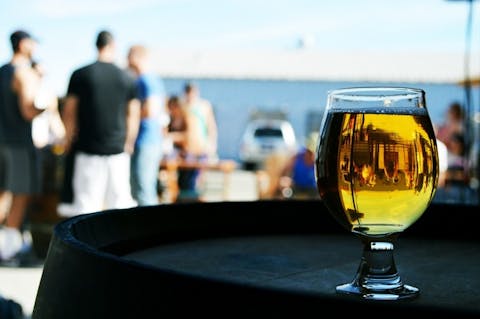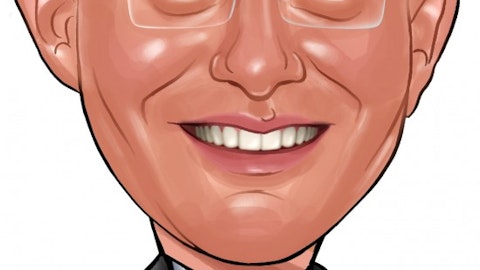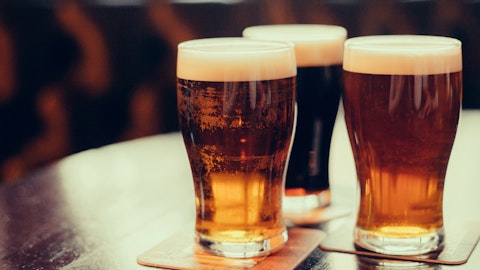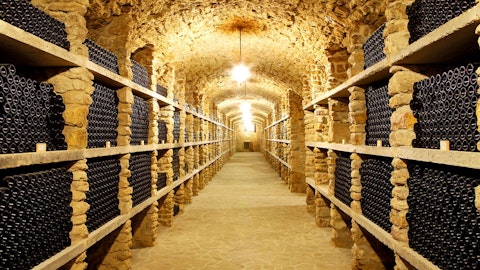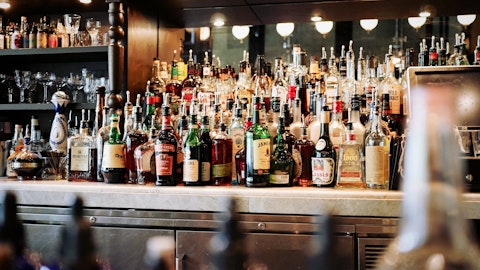The 11 largest beer companies in the world in 2017 dominate the beer industry in terms of market share. The global beer market has witnessed a significant growth over the last couple of years, owing to a rising number of local breweries brewing different types of beers. According to Statista, the global beer production increased to 1.96 billion hectolitres, up from 1.3 billion hectolitres in 1998. The global beer market is expected to grow at a 2% CAGR by 2020. China, the USA and Brazil are the leading beer producing countries worldwide. The USA is the largest beer market, followed by other key markets such as Germany, France, and the UK. The Asia Pacific region is also emerging to be an important beer market.
In 2016, the number of brewers crossed the 5,000 mark for the first time in history. The industry is also witnessing consolidation over the last few years. There were numerous acquisitions in the beer industry with AB InBev’s $107 billion purchase of SAB Miller being the largest one. Consequently, SAB Miller also renounced its 58% stake in the MillerCoors joint venture.

Beer is a globally consumed beverage made up of water, malt, hops and yeast as basic ingredients. It is the third most commonly drank beverage globally after water and tea. The beer market can be segmented into strong and light beer by types and macro and micro-brewery by production.
The 11 largest beer companies in the world in 2017 each own a large portfolio of top brands consumed worldwide. Rise in the disposable income and changing lifestyle of consumers have contributed towards increased beer consumption worldwide. Beer producers are increasingly tapping the opportunities in the emerging markets by expanding their distribution channels.
However, the global beer industry has been experiencing a falling demand recently. Over the last five years, market trends are also favoring a volume shift toward premium and value-based beers, away from core lager products. Increasing health awareness among masses has led to the consumption of wine, cider, and health-oriented drinks. The global beer market is also facing pressure from intense competition and competitive products, tighter regulatory and taxation measures and volatile economic conditions. The alcoholic beverage industry is highly regulated across production, sale, and distribution of alcoholic beverages.
Even though the industry is facing few challenges the demand for beer is always at peak as it is oldest and most consumed brewed beverage in the world. The industry is relatively recession-proof as people tend to drink both in good times as well as bad.
Over the next few pages, you can read about 11 largest beer companies in the world in 2017, based on the common choices between Globe News Wire and Allied Market Research. We have ranked the beer companies based on their annual output, measured in million hectolitres (hls). Anheuser Busch Inbev NV (ADR) (NYSE:BUD) and Molson Coors Brewing Co (NYSE:TAP) account for more than 80% of USA’s domestic beer production, excluding imports.
For further reading, you might also like to check out our list of the 10 largest beer brewing companies in the world.
11. Boston Beer Company Inc (NYSE:SAM)
Annual Volume – 4.7 million hls
The Boston Beer Company Inc (NYSE:SAM) is one of the largest craft brewers in the U.S. The company has an iconic beer brand portfolio that includes Samuel Adams and Angry Orchard Cider Company. Samuel Adams is among the top ten craft brewers, accounting for more than one-third of total craft beer sold in the U.S. market.
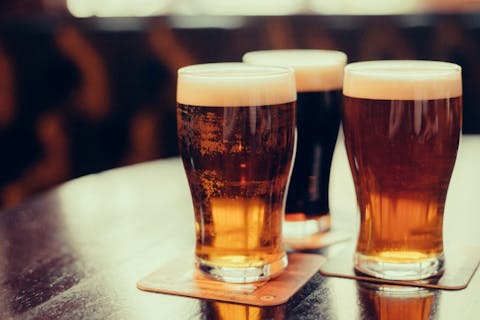
Natalya Okorokova/Shutterstock.com
10. Oettinger
Annual Volume – 9.3 million hls
Next in line in the list of largest beer companies in the world in 2017 is Oettinger. Oettinger is one of Germany’s biggest beer brands in terms of output. The company bottles nearly 2 billion bottles and cans with beer, beer-mix drinks and soft drinks every year which are sold across the globe. Oettinger produces a whole range of beers including 25 different types of beers and beer-mix drinks to choose from. Since March 2013 Oettinger’s beer has carried the official GMO-FREE seal, which has also extended to export beers since 2015.
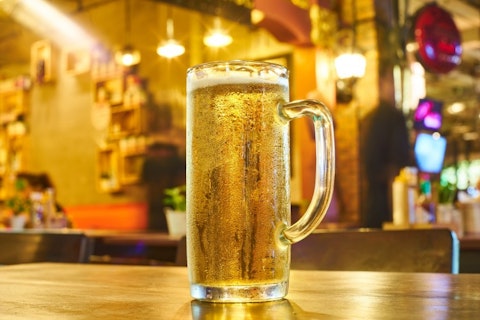
Pixabay/Public Domain
9. Kirin
Annual Volume – 42.5 million hls
Kirin is the world’s first press beer. The forerunner of Kirin, The Japan Brewery Company, was one of Japan’s oldest breweries. Kirin’s beers are brewed around the world, including Anheuser-Busch in the U.S. too. Kirin sells Kirin Lager and Ichiban Shibori, which are among the most popular beer brands in Japan.
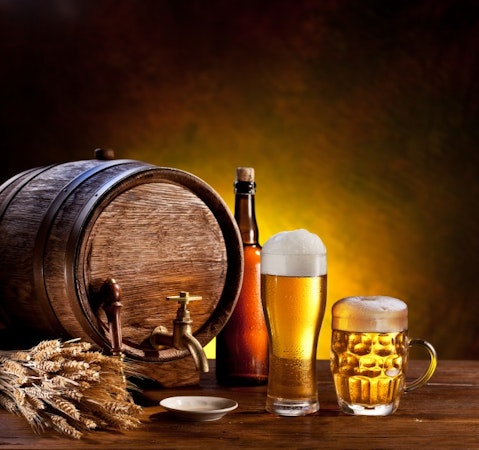
Valentyn Volkov/Shutterstock.com
8. Beijing Yanjing Brewery
Annual Volume – 45 million hls
Established in 1980, today Yanjing beer is one of the top selling beers in China. Yanjing is owned by the state-controlled enterprise Beijing Enterprises Holding. Yanjing beer is also the State beer of China and one of the official beer sponsors of 2008 Beijing Summer Olympic. It produces a range of pale lagers under the Yanjing brand, as well as beers under the Liquan, Huiquan, and Xuelu names.
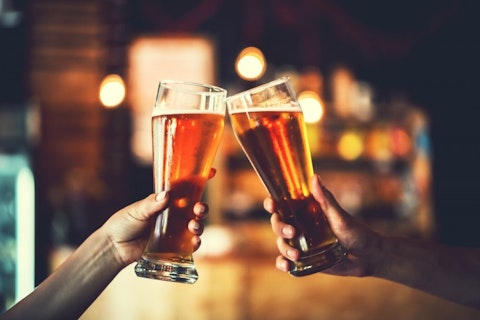
Ievgenii Meyer/Shutterstock.com
7. Asahi Breweries Ltd.
Annual Volume – 59 million hls
Headquartered in Tokyo, Asahi Breweries Ltd. is a leading brewery and soft drink company. It is one of the leading beer producers in Japan and sells beers, whisky, wine and other drinks. ASAHI SUPER DRY and Clear Asahi are its core beer brands. It controls beer manufacturing as well as marketing activities in different countries through 147 subsidiaries and 95 plants worldwide. The company’s businesses include domestic alcoholic beverage, soft drink, food, and overseas.

Syda Productions/Shutterstock.com
6. Diageo plc (ADR) (NYSE:DEO)
Annual Volume – 65 million hls
Diageo plc (ADR) (NYSE:DEO) is a leading global alcohol company with a portfolio consisting of 200 brands across spirits and beer. Though Diageo is a relatively newer player in the industry starting in 1997, it owns an iconic brand including Johnnie Walker, Smirnoff, and Guinness. Johnnie Walker is a truly global brand, enjoyed in almost 200 countries around the world. The company has more than 140 manufacturing sites in 30 countries and produces over 6.5 billion liters of its brands every year. Diageo plc (ADR) (NYSE:DEO) has a global presence expanding to North America, Europe, Asia Pacific, Africa, Latin America, and the Caribbean.
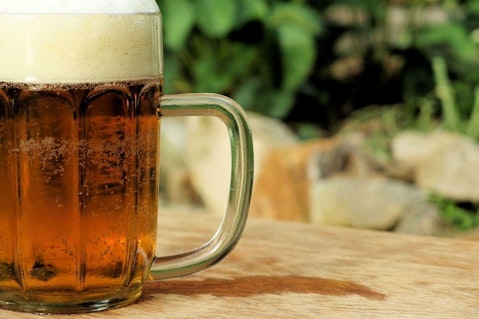
Pixabay/Public Domain
You can sign up below to get the latest news about Diageo plc. directly to your inbox.
Follow Diageo Plc (NYSE:DEO)
Follow Diageo Plc (NYSE:DEO)
Receive real-time insider trading and news alerts
5. Molson Coors Brewing Co (NYSE:TAP)
Annual Volume – 95.2 million hls
4. Carlsberg
Annual Volume – 116.9 hls
3. China Resources Beer Holdings Co Ltd
Annual Volume – 117 million hls
2. Heineken
Annual Volume – 200.1 million hls
Starting out with a single brewery in Amsterdam 150 years ago, today Heineken is the second among the 11 largest beer companies in the world in 2017. The company operates in over 70 global markets. Its brand portfolio consists of more than 250 international, regional, local and specialty beers and ciders. Heineken has a unique, well-balanced geographic footprint with leadership positions in both developed and developing markets.
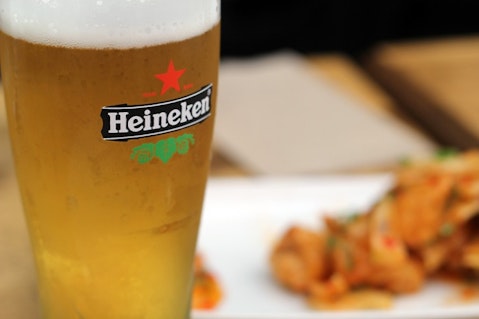
Pixabay/Public Domain
1. Anheuser Busch Inbev NV (ADR) (NYSE:BUD)
Annual Volume – 433.9 million hls
With $46 billion in revenue and over 430 million hls in annual output volume, Anheuser Busch Inbev NV (ADR) (NYSE:BUD) tops our list of 11 largest beer companies in the world in 2017. The company has operations in over 50 markets and sells beer in more than 150 countries worldwide. Anheuser Busch Inbev NV (ADR) (NYSE:BUD) is a leading global brewer and one of the world’s most prominent consumer products companies. Its main ingredients for making quality beer include barley, yeast, hops, adjunct grains, sugar, spices, and water. Anheuser Busch InBev’s brand portfolio has over 500 beer brands, including seven of the 10 most valuable beer brands in the world. Some of its most popular global brands are Budweiser, Corona, Stella Artois, Hoegaarden, and Leffe.
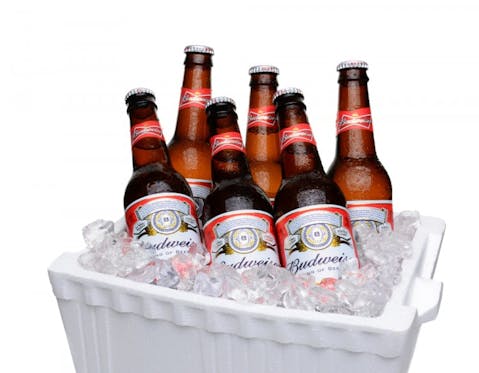
LunaseeStudios/Shutterstock.com
Follow Anheuser Busch Inbev Sa Nv (NYSE:BUD)
Follow Anheuser Busch Inbev Sa Nv (NYSE:BUD)
Receive real-time insider trading and news alerts
This is the list of 11 largest beer companies in the world in 2017. The companies in the list produce millions of cans and bottles of beer and hold many popular brands in their portfolios, which allows them to be the leaders in their markets.
Disclosure: None
